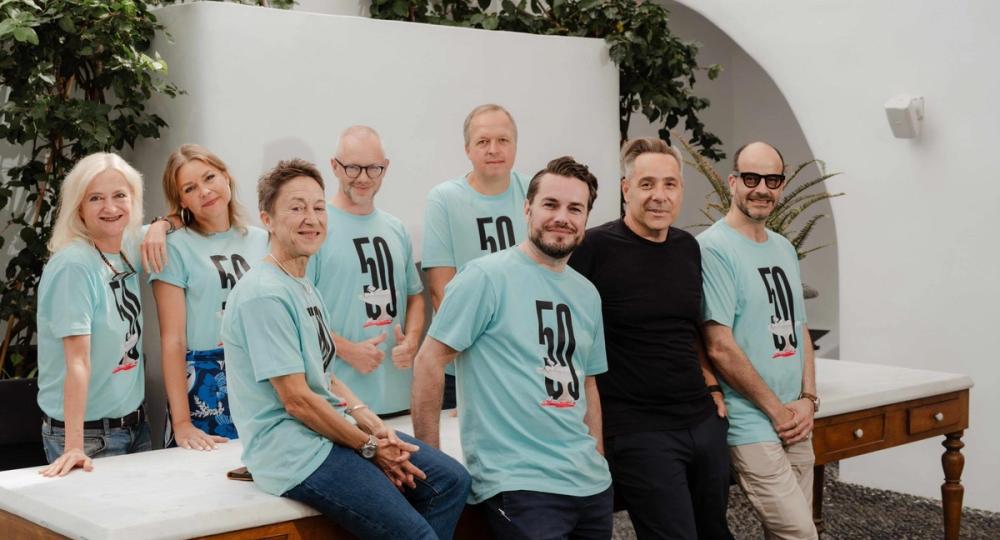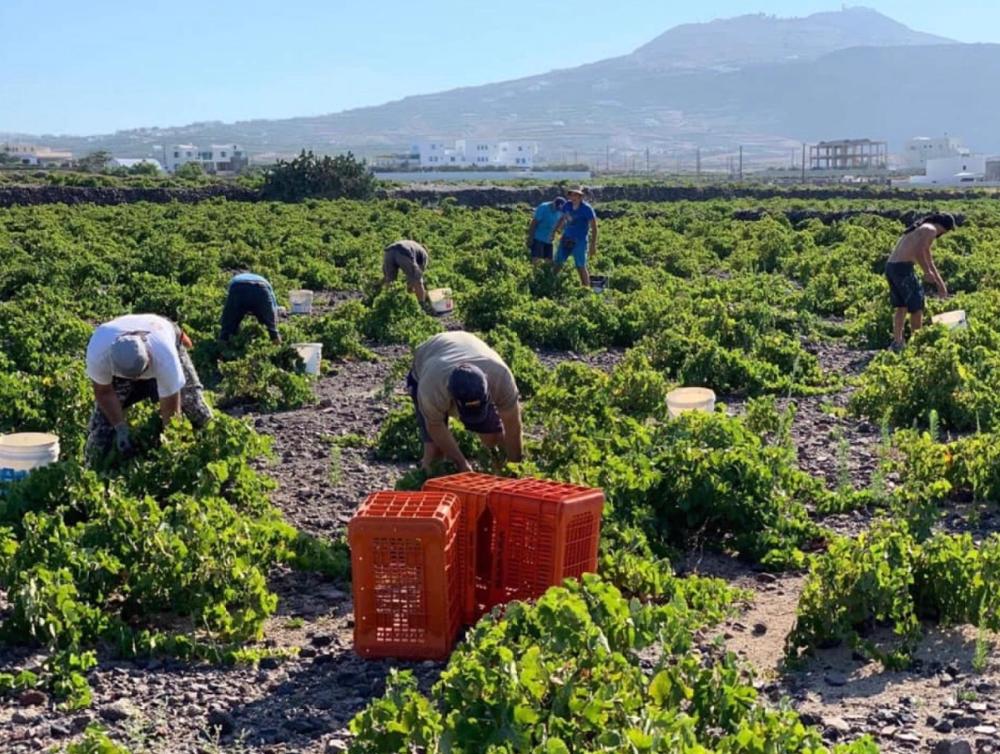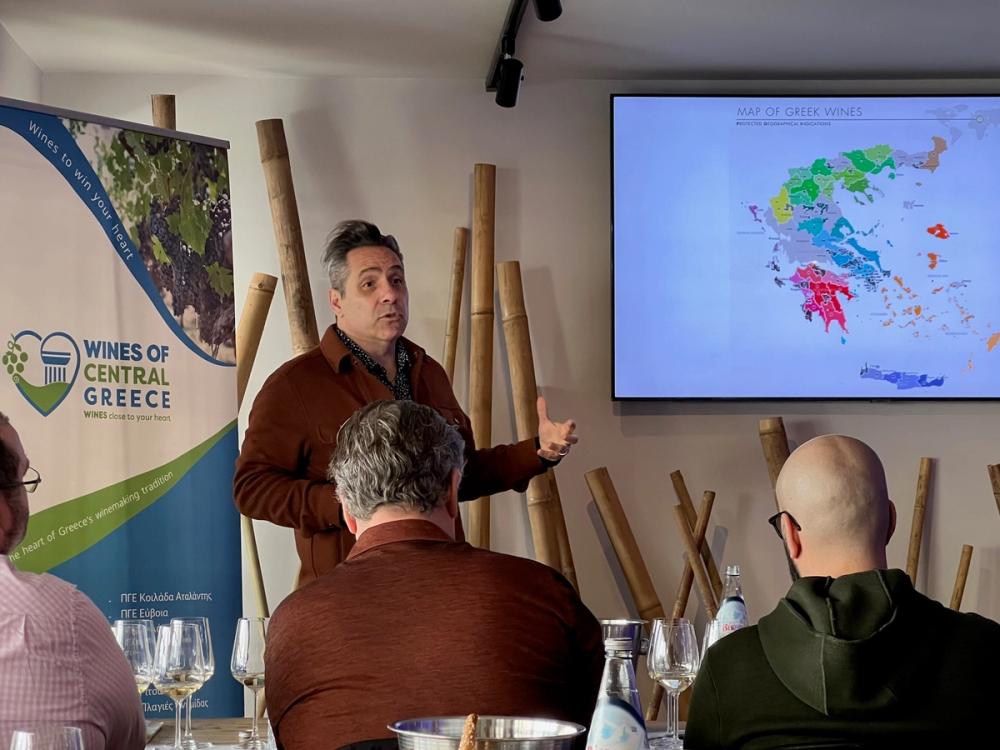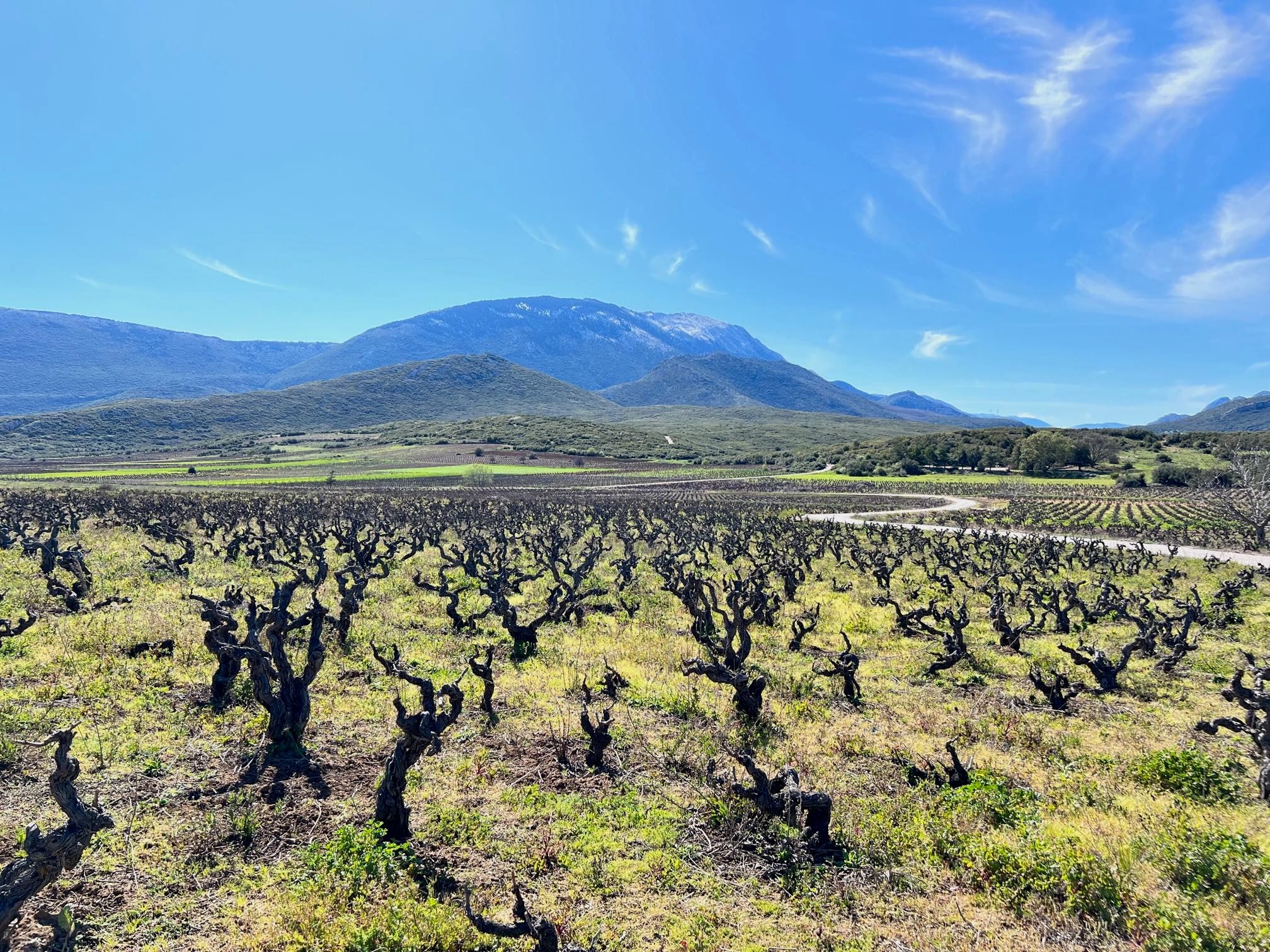Change is now well underway all over the Greece wine industry - even if some people appear reluctant to accept it. Α transformation, which can be seen in every single corner of the country.
Greek grape varieties stand at the core of this evolution. Assyrtiko and Xinomavro—and Agiorgitiko, Limniona, Mavrodaphne, Vidiano, Moschofilero, Kydonitsa, and so on—are the fundamental material for a talented generation of pioneering producers who craft fascinating wines. These wines reference the profound value of the diverse Greek terroirs, their long-standing traditions, and the uniqueness of the Greek vineyard.
And yet, this massive transformation is still largely unknown in the outside world. Greek wines are still very much unexplored and underrated. To a large extent, Greek wines are sold under the heading “other wines” in many lists around the globe.

Yiannis Karakasis MW is excited to bring the best of Greece to a breakthrough London tasting on May 28
Capturing the “momentum” of Greek wine is not an easy task and demands a great effort from different segments of the wine industry. We are trying to play our part with the launch of 50 Great Greek Wines in 2021. It is very much the culmination of the work that myself and Gregory Michailos have been doing over the last 10 years, travelling the country and trying to monitor, track and report on what has been this positive re-creation all over the country.
Yet something felt missing. Were we doing enough or was there another way we could tell the modern and current story of Greek wine?
Big step forward
Little did we know back then what we had agreed to. This was not just a step forward, but a full-time commitment to the impressive, complex, and massive work being made by Greek wine producers. To be able to write even this short synopsis about what the new era of Greek wine stands for requires hours of hard work, a lot of leg work and endless conversations in order to send a clear message about all the positive changes taking place.
For this is very much the time the right time for Greek wine to climb higher and reach new heights.
That is what 50 Great Greek Wines is all about. The chance to promote this beautiful “new cluster” of Greek wines and producers. It remains an irresistible challenge. From day one we have had the same purpose. To highlight and spread the news - as far as we can reach - about the rise of Greek wine.
Yes, we know to many Greek wine is still all about Retsina, but we now want them to know that Retsina can also be beautiful these days - as you can see in our most recent 50 GGW – The List that included four new age labels.

Some of the judges that took part in selecting the wines in the 50 Great Greek Wine awards
Greek wine has come a long way from its past reputation of producing cheap wines and can now deliver unparalleled quality and complexity. The whites exude tension, crystalline texture, and minerality, while the reds boast a firm structure and a high level of freshness. Even the sweet wines have found their place among the finest in the world.
Witnessing how Greek wine has matured into something extraordinary has been a revelation.
Navigating, however, the distinct differences between all the regions can be challenging for even experienced Greek wine professionals.
To do so you need to understand the relative recent history of Greek wine. It is an evolving narrative that is being written as we speak as winemakers and viticulturists strive every year to enhance the quality of their wines, better understanding the varieties they are made from, and identifying the best terroir. Consequently, even if it is by almost imperceptible degrees, vineyard management and winemaking practices are evolving. A challenge made even harder by climate change.
Resilience and tradition
But it is a journey of hope, resilience, and the enduring power of tradition. This is where we are seeing a new era of Greek wines being born that are firmly rooted in the past. The once rejected traditional Retsina, the skin-fermented (orange) wines, the almost forgotten Verdea of Zakynthos, the Nykteri of Santorini, or the beautiful oxidative (often low-intervention) styles made all over Greece.
In my view, no one can see the fantastic progress in Greek wine without referring to how the new cohort of vignerons and producers have embraced these styles and being willing to celebrate the invaluable heritage of Greece. For although Greek wine is in a remarkable state of evolution and flux, tradition still stands strong among the leading Greek producers.
Willing to focus on indigenous grape varieties and bring their unique flavours into the 21st century.
It’s not only about finding the “new”, the undiscovered places, like Naxos, or the grape varieties that pop up on a yearly basis. It’s not just about focusing on the high-tech cellars, the cement eggs, the modern amphoras, or any other of these contemporary “toys” available to the winemakers.

Grapes being picked in Santorini which is at the heart of the Greek wine revolution
“New” can be traced everywhere. And often, it is in the old ways that are carefully made new. If Retsina was neglected in the past and usually considered cheap and low-quality, that’s only because it has been underestimated - mostly on the producer’s part. However, the four exceptional wines that made it to the 50 GGW: The List consist of a meaningful “symbol” of the new Greek wine era. Retsina is a traditional wine with a long history made since antiquity, now re-envisioned in a more meaningful way by pioneering producers. This is symbolic of how Greek wine is progressing.
Orange renaissance
We must also pay respect to the “Orange” wine renaissance in Greece. Using whatever term, you want to describe them, either as orange, amber, macerated, or skin-contact wines, this is one of the fast growing categories of wine worldwide. Orange wines are made from white grape varieties with the reservation that pink-skinned grapes, such as Roditis or Moscofilero, can produce orange wines. The skins and, very often, the stems are left in the fermentation vessel for some time. In some cases, orange wines remain with their skins only during fermentation and then pressed and racked off to vessels such as barrels, stainless steel, or amphorae.
In other cases, the winemaker will decide to extend the maceration of the skins with the juice for weeks, or even months to extract as many components as possible from the skins. There is nothing new in orange wines, yet the category has been revived and could be considered a re-birth of a style that people probably drank thousands of years ago.

Yiannis Karakasis MW hosting one of the sessions for UK wine buyers organised by Wines of Central Greece and The Buyer in 2023
The wines, depending on how long they have stayed on their skins, develop more structure, and based on the grape variety, they can boost their aromatic intensity. And “boom”, this traditional category amazed our judges, with five singular “ orange” wines making it deservingly to the 50GGW list.
These are only a few key points that make Greek wine more contemporary than ever. 50 Great Greek Wines is not about presenting or preserving history. Based on our powerful heritage, we are devoted to building something new and strong that speaks to people today. It's about fusing the innovation of a boutique concept store with the timeless elegance of an art gallery
50 GGW Tasting in London May 29

You can come and taste and discover the new Greek wine revolution for yourself at the first London tasting that will include all the wines featured in the 2024 50 Great Greek Wine Awards. There will also be the chance to taste other wines in the producers’ portfolios - 150 wines from 33 wineries - in what promises to be a breakthrough event for the country in the UK.
The event is being held in partnership with the Greek National Tourism Organisation.
Where: China Exchange, Moonchu Hall, 2nd Floor, 32A Gerrard Street, London, W1D 6JA.
When: 11am-5pm.
* NB: You can read a review of how the 50 GGW judging is done and who takes part from around the world including a strong delegation of leading UK wine buyers and professionals. Click here to read.

50 GGW Masterclass May 28
Ahead of the tasting Stefan Neumann MS and Yiannis Karakasis MW will be hosting a special masterclass looking at wines featured in the 50 GGW list on May 28.
Where: Scotland Yard Hotel, 3-5 Great Scotland Yard.
When: 10am-12pm.
To register: Contact sophia@greatgreekwines.com for any available seats.






























